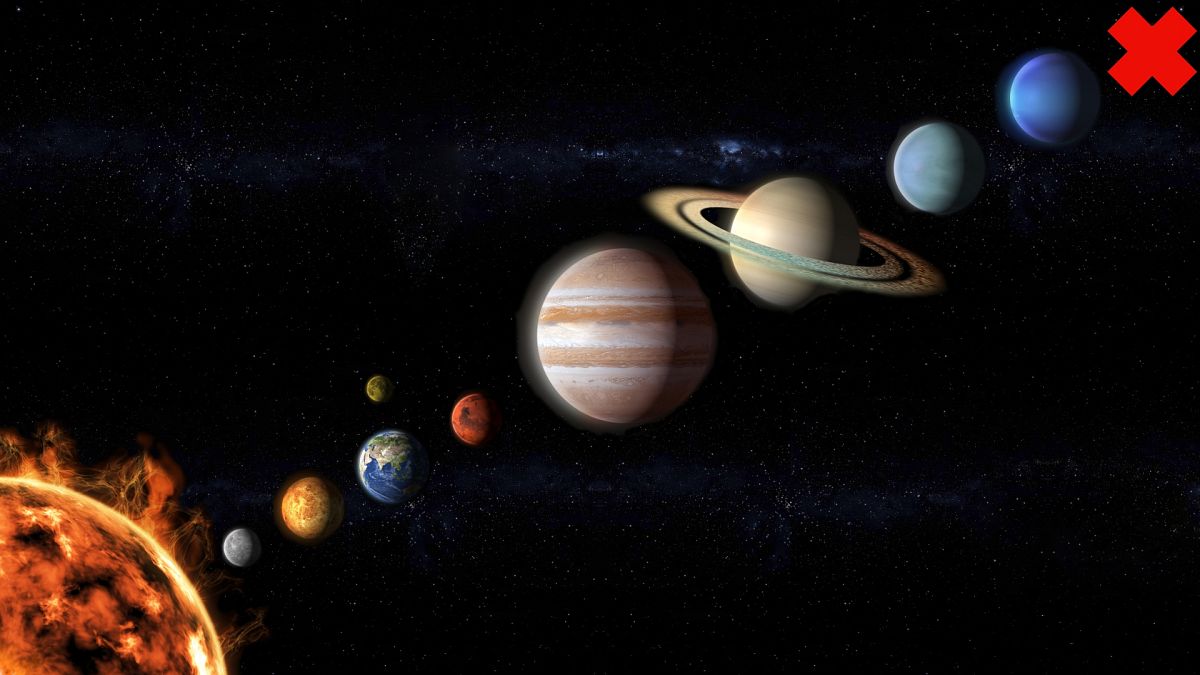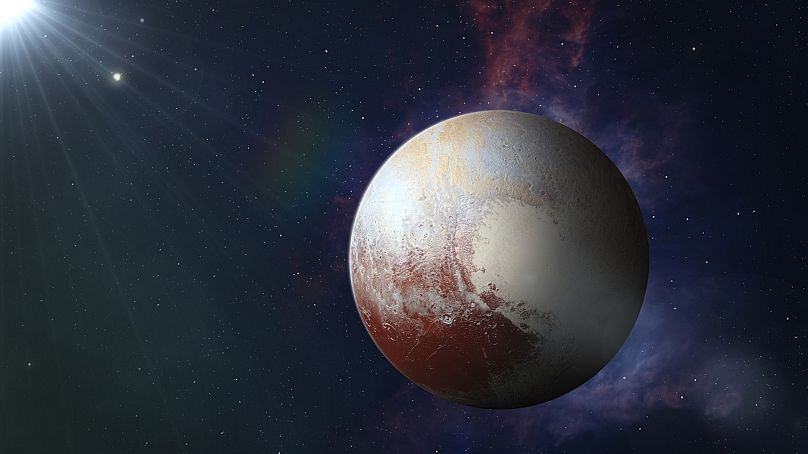24 August 2006: There’s one less planet in the sky.
Ever since I was a little kid, I always remembered the names of the planets in our solar system through a clever mnemonic.
“My Very Easy Method Just Speeds Up Naming Planets” is still the go-to phrase I use at pub quizzes to remind me of the order: Mercury, Venus, Earth, Mars, Jupiter, Saturn, Uranus, Neptune and… well, this is where it gets awkward.
The mnemonic loses something when it doesn’t feature the final word “planets”. But on this day in 2006, the ninth planet in the solar system was demoted.
After the discovery of Neptune in the 1840s, astronomers noticed the eighth planet’s orbit was being disturbed by another celestial object. As a result, astronomers went on the hunt for a ninth planet. Pluto was first discovered in 1930 by the American astronomer Clyde W. Tombaugh.
Named after the Roman god of the underworld, Pluto has always been a bit of an outlier in the list of the planets. Firstly, it is literally an outlier, orbiting at a distance far greater away from the Sun than any of the other planets.
The next complication was its mass. Before it was discovered, it was theorised that Pluto would have to be around seven times the mass of Earth. Upon Tombaugh’s discovery, that was then amended to the same mass as Earth. Then, in 1948, it was suggested that Pluto had a similar mass to Mars, about a 10th of Earth’s mass.
This was then reduced again to a 100th of Earth’s mass in 1976. The mass continued to fall until our current estimate that it is roughly equivalent to a 459th of the Earth.
Then, in 1992 discoveries were made of other objects near Pluto. The Kuiper belt was discovered to contain many similarly sized bodies. In the early 19th century, a similar thing happened to another celestial object. When Ceres was discovered in 1801 it was announced as a new planet. Following the discovery of other asteroids around Ceres’ size, it was downgraded to an asteroid.
In 2006, the International Astronomical Union (IAU) started talks to define exactly what a planet was. They eventually landed on the definitions that a planet is: “a celestial body that (a) has sufficient mass for its self-gravity to overcome rigid-body forces so that it assumes a hydrostatic equilibrium (nearly round) shape, and (b) is in orbit around a star, and is neither a star nor a satellite of a planet”.
With this definition, Ceres would have counted as a planet. But then the IAU added this detail today in 2006. A planet must have “cleared the neighbourhood around its orbit”. As Ceres didn’t dominate its orbit, it was classed as a dwarf planet.
Pluto also failed to meet the third condition due to the Kuiper belt. As it met the first two, it, like Ceres, was reclassified as a dwarf planet.
The move to demote Pluto wasn’t publicly popular at first. That year, “plutoed” was American Dialect Society’s Word of the Year as a neologism for demoting something. One of the astronomers largely responsible for the decision, Mike Brown, even released the memoir ‘How I Killed Pluto and Why It Had It Coming’ in 2010 to document his reasoning.




